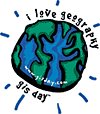A chilling article in today's Washington Post gives new details on the ways we are being monitored.
Nothing new, right? Well hold on... the article says that the government is engaging in a dramatic uptick of domestic surveillance by issuing special national security letters. These letters are secret (if you get one it's a crime to even make them public).
The example they give is a letter they uncovered that was given to a library employee, who was asked to hand over user logs of a public computer: "all subscriber information, billing information and access logs of any person" using the library computer.
These letters, which have been used sparingly since the 1970s have suddenly exploded. WaPo says about 30,000 of these letters are now issued by the FBI every year:
Issued by FBI field supervisors, national security letters do not need the imprimatur of a prosecutor, grand jury or judge. They receive no review after the fact by the Justice Department or Congress. The executive branch maintains only statistics, which are incomplete and confined to classified reports. The Bush administration defeated legislation and a lawsuit to require a public accounting, and has offered no example in which the use of a national security letter helped disrupt a terrorist plot.
The cause is the Patriot Act (of course!). BushCo. have attempted to compare them to Grand Jury subpoenas, but the piece points out that unlike subpoenas, NSLs are aimed not at past activities but at future or potential behavior. In other words they need no prior cause or even illegality, but only the label "bad guy."
Crime therefore is no longer about catching and punishing transgressors, but about predicting and assessing potential future crimes based on risk analysis. Hence "risk society."
Why is a risk society bad? Here are some reasons I thought of:
1. Surveillance switches from the few to the all--since we're all potentially risky. Constant surveillance (including geosurveillance).
2. Death of democracy: "A society in which everyone's actions are tracked is not, in principle, free" (
EFF).
3. If we're constantly surveilled, and know we're surveilled, it will chill our behavior and expression.
4. This constant surveillance will probably include geosurveillance and human tracking
One last point. In ancien regime France they had something called
lettres de cachet. These letters were denunciation letters issued by the state (the king). Get one of these and you were carted off to prison. They were of course perverted in that they became
available for sale in order to deal with troublesome people, people who were unwanted, strange, disorderly, mad, bad, etc. (families would especially buy these to cart off unwanted family members).
National security letters =
lettres de cachet?
